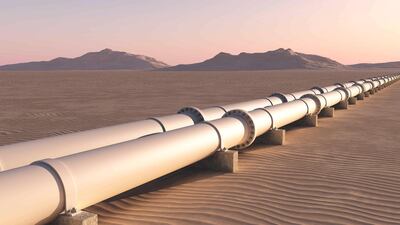Countries in the Middle East and North Africa will require "substantial" private capital to develop their energy sectors over the next five years following the Covid-19 pandemic, according to the Arab Petroleum Investments Corporation .
Globally, energy investments are forecast to decline 20 per cent this year as pandemic-induced movement restrictions led to a decline in demand for energy, according to the International Energy Agency.
In spite of the projected decline, the industry still requires the private sector's assistance, even as it taps debt markets at "unprecedented levels", Apicorp said in a report on Tuesday.
Governments in the GCC issued a record $126 billion in US dollar and Islamic securities in 2020.
"The current vicious circle of low revenue, low investment [and] low output needs to be broken, and a virtuous cycle of investments in lower cost, lower carbon, sustainable assets needs to be induced," said Apicorp chief economist Leila Benali.
The Dammam-based multilateral lender sees a growing momentum towards consolidation, mergers and acquisitions in the sector as well as strategic repositioning by industry players.
In its five-year outlook, Apicorp sees the region bucking international trends by increasing planned energy investments, notably in gas.
Investments in gas, regarded as a transitional fuel in West and East Asian economies, could jump by 29 per cent in the Mena region due to "higher commitments to gas-to-power projects, improved monetisation of gas as a feedstock and strategic market share position for imports".
Globally, spending on oil and gas projects is estimated to have declined by 75 per cent in 2020 to $47bn as energy companies slashed investments to mitigate the economic impacts of Covid-19, according to Rystad Energy.
But national oil companies in the Middle East, such as Adnoc, received approval to spend $122bn over the next five years, particularly in gas. Abu Dhabi has made significant discoveries of unconventional oil as well as gas in recent years.


